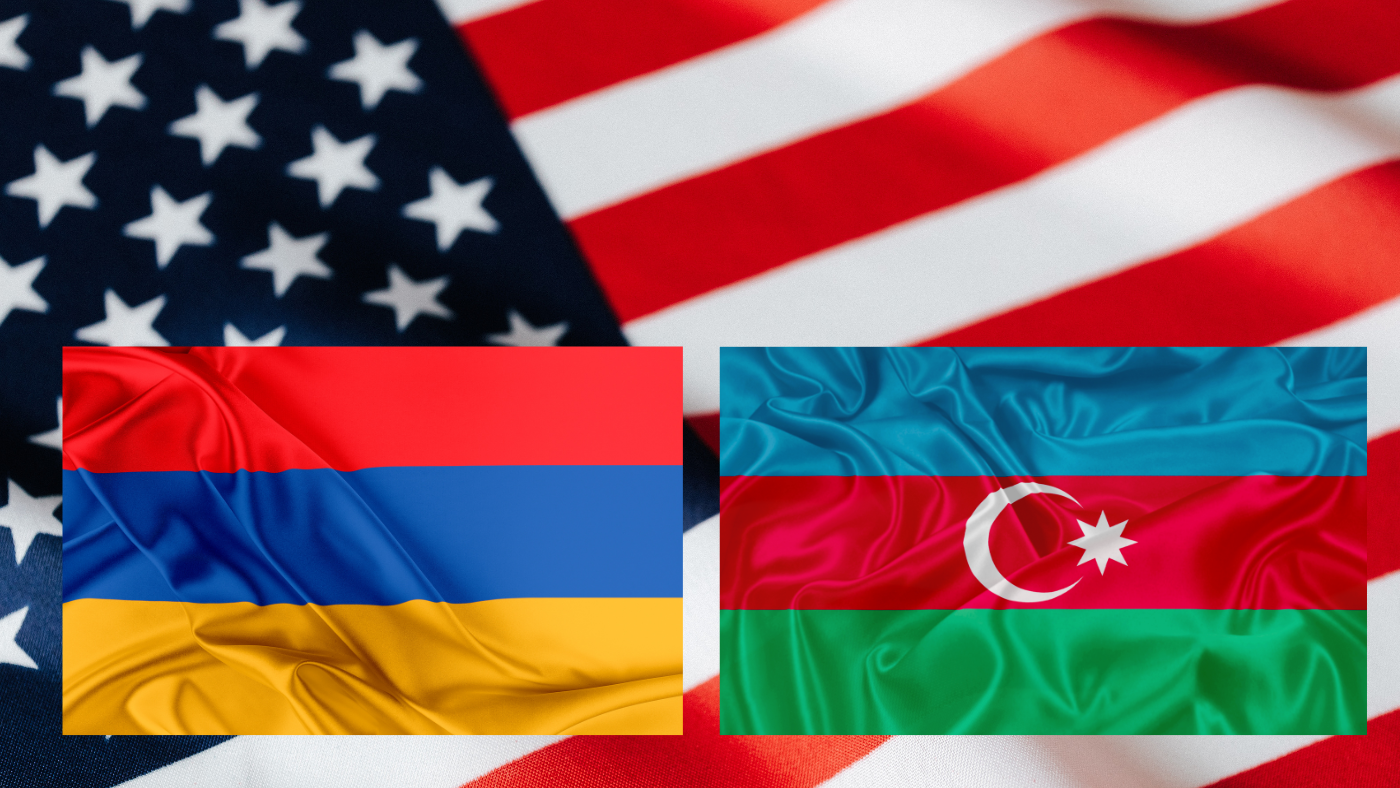
US Secretary of State Antony Blinken said Armenia and Azerbaijan made further progress towards a peace deal in the three-day US-hosted talks in late June, yet tensions persist in the disputed territory of Nagorno Karabakh
In early June in Chisinau, Moldova, Armenian Prime Minister Nikol Pashinyan announced that the Armenian and Azerbaijani Foreign Ministers, Ararat Mirzoyan and Jeyhun Bayramov, would meet again in Arlington, Virginia, on June 12. However, the meeting facilitated by US Secretary of State Antony Blinken only took place on June 27. Baku had requested a postponement the week before due to the visit of Turkish President Recep Tayyip Erdoğan, fresh from re-election, scheduled for June 12-13.
Despite the delay, there had initially been some hope that last week's US-facilitated meeting could lead to a significant breakthrough, coming soon after last month's meeting between Azerbaijani President Aliyev and Armenian Prime Minister Pashinyan at the European political summit in Chisinau. Indeed, on June 8, senior Armenian officers in uniform arrived in the Azerbaijani capital for a meeting of the commanders of the Commonwealth of Independent States border guard services.
However, such hopes were short-lived. On June 15, Armenian forces fired on a group of Azerbaijani soldiers who had hoisted their national flag at one end of the Hakari Bridge which now houses the Baku checkpoint at the start of the Lachin Corridor, the strategic link between Armenia and the remnants of the former Nagorno Karabakh Autonomous Region that crosses into Azerbaijan's sovereign territory, temporarily and ostensibly under the control of Russian peacekeepers.
According to Yerevan the soldiers were trying to cross into Armenian territory, but Baku denies it. Indeed, the video of the incident appears to show that attempts to hoist the Azerbaijani flag took place on the bridge that Baku built to divert the Lachin Corridor, as per the 2020 ceasefire declaration.
In the absence of a properly demarcated border, such incidents are inevitable. Yet opposition activists in Armenia have also criticised Yerevan for opening fire on Azerbaijani soldiers, claiming no warning shots were fired and that the only result of such an incident was the closure of the Lachin checkpoint and the imposition of what can now probably be considered a real blockade.
Although the International Committee of the Red Cross (ICRC) resumed the transfer of patients between Armenia and Karabakh on 25 June, and helicopter flights by the Russian peacekeeping contingent also increased, this latest development had already exacerbated the situation ever most vulnerable in which Stepanakert is located. Still, photographs of US Secretary of State Antony Blinken casually walking with a spirited Bayramov and Mirzoyan on June 27 at least allayed those concerns.
During the night, however, the worst was yet to come with clashes on the line of contact in Karabakh which left four ethnic Armenian soldiers dead. The de facto authorities in Stepanakert, still opposed to the negotiations between Yerevan and Baku, have asked the Armenian delegations to abandon the talks immediately. The Armenian government, however, has ignored these calls. Armenian Parliament Speaker Alen Simonyan rhetorically asked what the alternative to negotiations is, in a clear reference to the possibility of renewed large-scale hostilities in Karabakh or on the very border between Armenia and Azerbaijan.
However, the three days of talks have not led to much progress, at least in the public record, even though Blinken acknowledged that the sides have reached an agreement on a number of issues. However, Blinken admitted without however providing details, the main questions still remain outstanding.
However, one of these issues is believed to concern the rights and security of the Armenian population of Karabakh within Azerbaijan.
Last month, Russian media reported that the US had attempted to "pressure" the de facto authorities to negotiate with Baku on neutral ground, it was confirmed this week. On July 2, former de facto defense minister Samuel Babayan criticised Karabakh's lack of cooperation in an interview with Radio Free Europe/ Radio Liberty's Armenia Service. In further confirmation, in a July 3 interview on Armenian public television, the US ambassador in Yerevan, Lynn Tracy, said that Washington "believes and hopes" that such rights can be guaranteed inside Azerbaijan.
“I think everyone understands that in some cases the closer you get to reaching an agreement, the more difficult it becomes, because by definition the more difficult issues are left for the end,” Blinken said in the live remarks. "But I really appreciate the spirit of openness, openness, candor that everyone has shown. This is the way, ultimately, to reach mutual understanding and then an agreement."
This has naturally emboldened analysts in Yerevan opposed to a peace deal, who would prefer a new status quo to a negotiated settlement, as no international player sees Karabakh's future as anything other than a part of Azerbaijan. Others, on the other hand, believe that not much more could have been expected from the Arlington talks, seen more than anything else as a further step towards the next meeting between Aliyev and Pashinyan, scheduled for July 21 in Brussels with the facilitation of European Council President Charles Michel.
In the meantime, however, Baku remains impatient while the de facto leadership of Karabakh remains opposed to direct dialogue between the parties. Armenian and Azerbaijani analysts believe that, barring a breakthrough or at least signs of tangible progress towards a negotiated settlement later this year, Baku could launch a "counter-terrorism" operation against what it sees as illegal armed groups operating on its territory.






 To Top
To Top